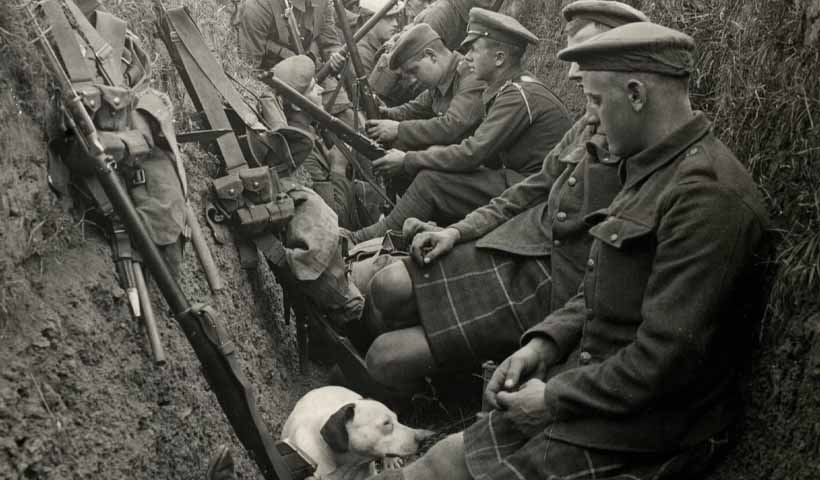Throughout the ages, man has fought with itself, men of one tribe against men from another, in war, males seldom see compassion, even more so in the dark ages, and civil war onwards. Dark age warfare was very much iron, axe, and chainmail. Raids and pillaging, men were often killed outright or enslaved if they were of a larger stock. The women of the enemy tribe were often if not always given a choice, come with me and integrate, or die. Women often if not exclusively chose the former. Men had no such option.
Also Read: The Myth of Male Privilege
With the invention of black powder, later gunpowder, man’s role in combat (war) changed drastically, with that powder came explosives thus creating trenches, where disease and muck lay in wait. One of the most dangerous jobs in WWI was courier, where a man would travel from trench to trench with word of strategy and tactics and even small supplies. A certain Austrian painter was in this role. A role that had a very high mortality rate may I add.
The medieval age however was a time mostly of compassion, battles (war) were nowhere near as bloody or fatal as often portrayed. Warriors were often let go after combat, they would surrender often and easily, and there was honour in knowing when to stop. When a soldier surrendered it was honourable to let them go back to their village or city. Chivalry was more so a code of honour amongst the knights specifically, when one died in combat, both sides paused and laid him to rest. Then continued the fighting.
We should all remember the men and now women who serve their nations, even if the nation is doing something evil or terrible, the soldier is not to blame, they are only serving the greater good of their nation, even if the nation has other plans. Be sure to remember how men often sacrifice much for so little in return, for it is men’s compassion that we exist today.

Please Read the Article Submission and Our Editorial Policy for More Information Regarding this user account!!
Discover more from NEWSOFX
Subscribe to get the latest posts sent to your email.


